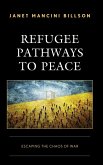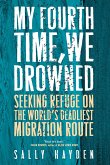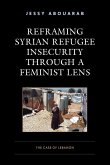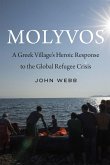Un-welcome to Denmark, by Michelle Pace with Sarah El-Abd, critically assesses Denmark's migration regime by directly engaging the voices of multiple stakeholders impacted by its harshness. It puts forward the theory of the 'unwelcome migrant' by undertaking an extensive analysis of the programmatic and legal foundations for the 'undeserving migrant' as well as of the lived experiences of Syrian refugees, welfare professionals and private businesses tasked with supporting them. It thereby documents the ways in which the Danish migration gaze produces and perpetuates the hyper precarity of the everyday lives of Syrians and the anxiety that overshadows the manner in which Syrians and those who support them navigate its maze. By so doing, it traces how a once admired, liberal, tolerant and open society with a strong reverence for human rights has turned into one of the harshest migration regimes in Europe, if not internationally.
Bitte wählen Sie Ihr Anliegen aus.
Rechnungen
Retourenschein anfordern
Bestellstatus
Storno








